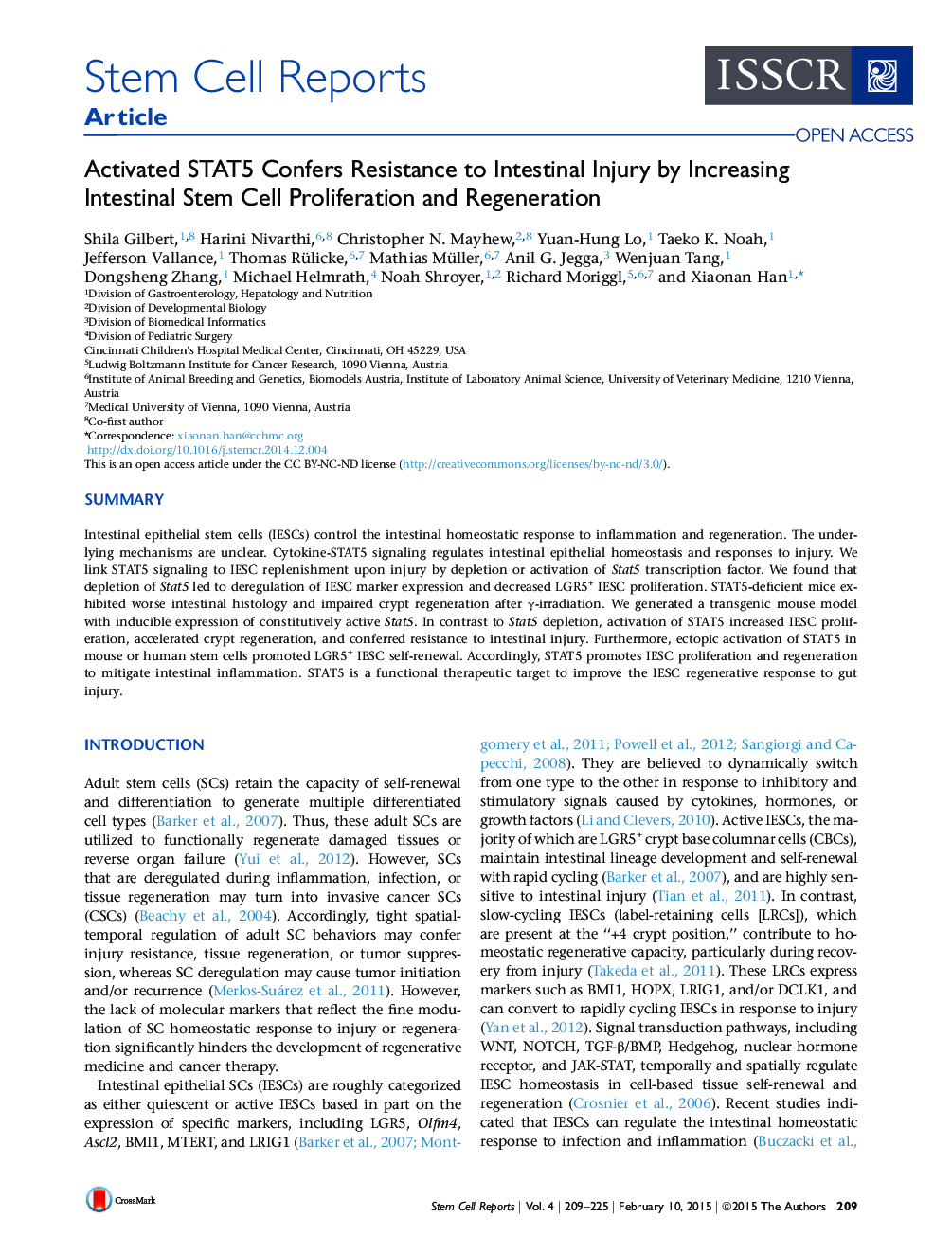| Article ID | Journal | Published Year | Pages | File Type |
|---|---|---|---|---|
| 2093560 | Stem Cell Reports | 2015 | 17 Pages |
•Loss of STAT5 impairs intestinal stem cell proliferation•Activated STAT5 increases intestinal stem cell regeneration•Activation of cytokine-STAT5 signaling mitigates intestinal inflammation
SummaryIntestinal epithelial stem cells (IESCs) control the intestinal homeostatic response to inflammation and regeneration. The underlying mechanisms are unclear. Cytokine-STAT5 signaling regulates intestinal epithelial homeostasis and responses to injury. We link STAT5 signaling to IESC replenishment upon injury by depletion or activation of Stat5 transcription factor. We found that depletion of Stat5 led to deregulation of IESC marker expression and decreased LGR5+ IESC proliferation. STAT5-deficient mice exhibited worse intestinal histology and impaired crypt regeneration after γ-irradiation. We generated a transgenic mouse model with inducible expression of constitutively active Stat5. In contrast to Stat5 depletion, activation of STAT5 increased IESC proliferation, accelerated crypt regeneration, and conferred resistance to intestinal injury. Furthermore, ectopic activation of STAT5 in mouse or human stem cells promoted LGR5+ IESC self-renewal. Accordingly, STAT5 promotes IESC proliferation and regeneration to mitigate intestinal inflammation. STAT5 is a functional therapeutic target to improve the IESC regenerative response to gut injury.
Graphical AbstractFigure optionsDownload full-size imageDownload as PowerPoint slide
